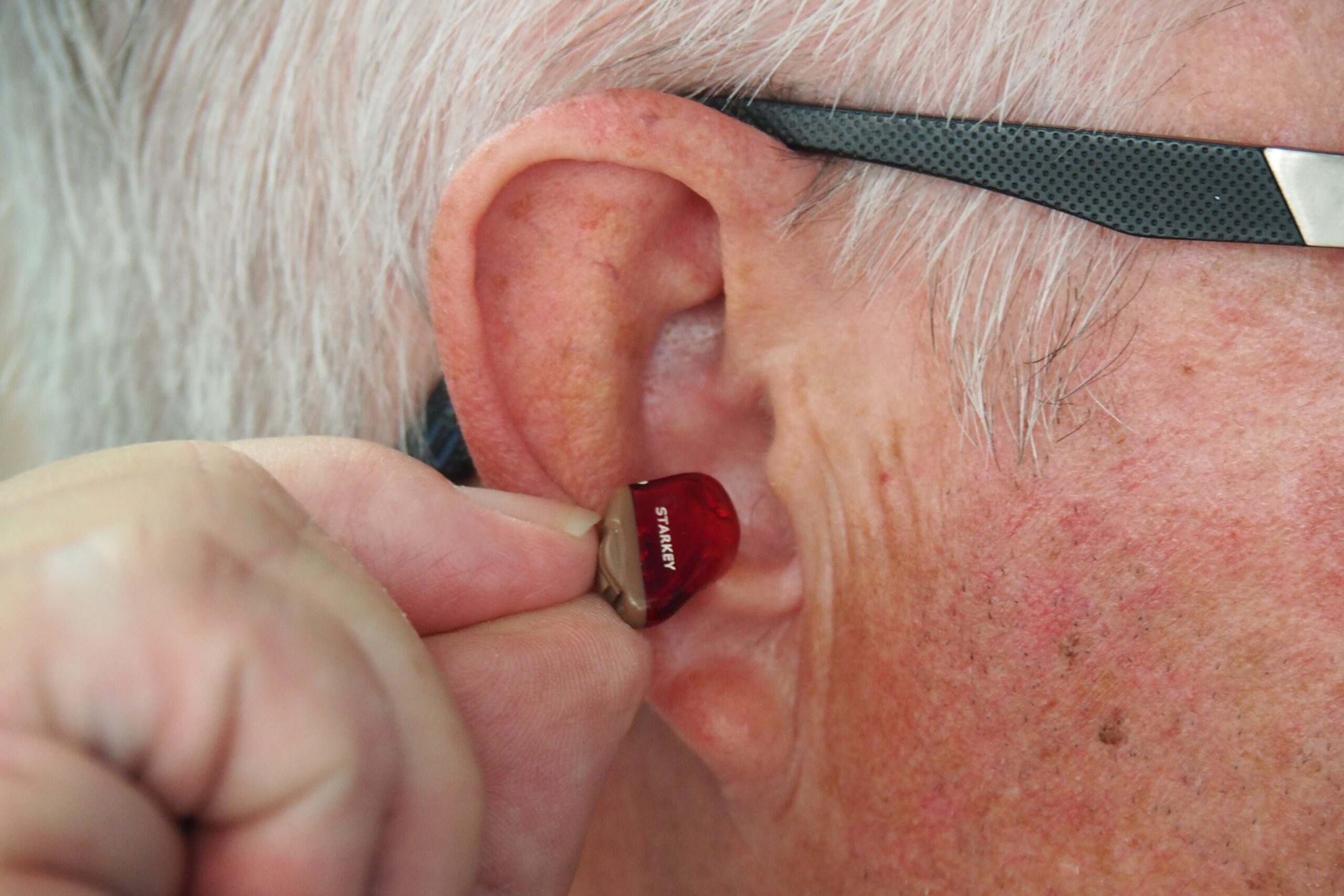A hearing aid is a tiny electrical gadget in or behind your ear that you wear. It makes those sounds louder so that a person with hearing loss can listen, connect, and take part in everyday tasks more thoroughly. In both silent and loud conditions, a hearing aid may help individuals hear better. Nevertheless, only about one in five persons who would benefit from a hearing aid currently use one.
There are three basic components of a hearing aid: a microphone, an amplifier, and a speaker. Via a microphone, the hearing aid absorbs sound, and transforms the sound waves to electrical signals and delivers them to an amplifier. The amplifier boosts the power of the signals and then transfers them through a speaker to the ear.
How can hearing aids aid hearing loss?
Hearing aids are mostly effective in enhancing the perception of the hearing and voice of persons who have hearing loss arising from injury to the tiny sensory cells in the inner ear, called hair cells. Sensorineural hearing loss is what this form of hearing loss is called. Damage can occur due to sickness, ageing, or injury caused by noise or certain medications.
Sound signals hitting the ear are magnified when using premium quality hearing aids in Sri Lanka. The greater waves are sensed by surviving hair cells and transformed into electrical impulses that are transmitted along to the brain. The higher the harm to the hair cells of a human, the more serious the hearing damage, and the greater the enhancement of the hearing aid used to cover up the gap. However, the amount of amplification a hearing aid can have has realistic limitations. Furthermore, even massive vibrations cannot be transformed into electrical impulses if the inner ear is affected too badly. A hearing aid in this case will be inadequate.
How will you find out if you need a hearing aid?
Visit the doctor, who can recommend you to an otolaryngologist or audiologist, if you suspect you may have hearing loss and may benefit from a hearing aid. A specialist who specializes in ear, nose, and throat conditions is an otolaryngologist who may investigate the cause of hearing loss. An audiologist is an audiologist who detects, and tests hearing loss and performs a hearing test to determine the form and degree of loss.
Types of hearing aids
The hearing aid prices in Sri Lanka are extremely affordable with the availability of a vast range of hearing aids.
Behind the ear – A rigid plastic case worn behind the ear and attached to a plastic earmold that sits inside the outer ear consists of (BTE) hearing aids. Behind the ear, the electrical components are kept in the shell. Sound passes over the earmold and towards the ear through the hearing aid. BTE aids are used for moderate to severe hearing loss for persons of all ages.
An open-fit hearing aid is a modern sort of BTE aid. With just a short tube threaded into the ear canal, thin, loose-fit aids fit behind the ear entirely, allowing the canal to stay open. For this cause, for those who suffer earwax deposition, open-fit hearing aids can be a safe option, since this form of aid is less likely to be impaired by such chemicals.
In the ear – (ITE) hearing aids are used for moderate to serious hearing damage and work entirely inside the outer ear. Strong plastic is made of the case containing the electrical bits. Some ITE aids may have such additional functions, such as a telecoil, mounted. A telecoil is a small magnetic coil that helps patients, rather than their microphone, to receive sound through the circuit of the hearing aid.
Canal – In two types, aids fit into the ear canal and are available. The hearing aid in-the-canal (ITC) is designed to match the size and form of the ear canal of a human. In the ear canal, a completely-in-canal (CIC) hearing aid is almost covered. For mild to medium extreme hearing loss, both forms are included.






